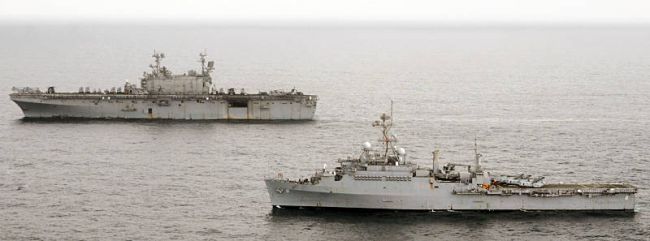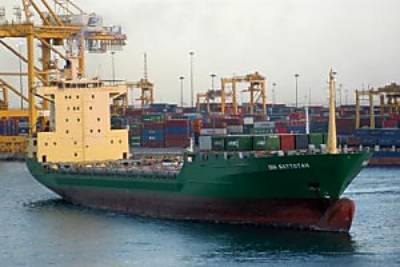WASHINGTON, July 29, 2010 — Those who leaked classified documents to WikiLeaks and those who decided to publish them may have blood on their hands, the chairman of the Joint Chiefs of Staff said here today.
The WikiLeaks organization made public tens of thousands of classified battlefield reports.
Navy Adm. Mike Mullen and Defense Secretary Robert M. Gates condemned the leak in the strongest possible manner. Gates said he has asked the FBI to help Pentagon authorities in the investigation.
The chairman challenged the motivation of Julian Assange, the founder of WikiLeaks, to publish the leaked documents.
“Mr. Assange can say whatever he likes about the greater good he thinks he and his source are doing, but the truth is they might already have on their hands the blood of some young soldier or that of an Afghan family,” Mullen said.
People can reasonably disagree about the war and they can challenge commanders for their decisions, “but don’t put those who willingly go into harm’s way even further in harm’s way just to satisfy your need to make a point,” the chairman said.
Gates said the more than 90,000 documents that have been posted are old, and cover material already well known and debated. Still, he said, the release has battlefield consequences for U.S. and Afghan troops and Afghan civilians and also may damage U.S. relationships in Central Asia and the Middle East.
Intelligence sources and methods, as well as military tactics, techniques and procedures, will become known to U.S. adversaries, the secretary said.
“These documents represent a mountain of raw data and individual impressions, most several years old, devoid of context or analysis,” Gates said. “They do not represent official positions or policy. And they do not, in my view, fundamentally call into question the efficacy of our current strategy in Afghanistan and its prospects for success.”
Defense Department officials will conduct a thorough and aggressive investigation to determine how this leak occurred, to identify who is responsible and to assess the content of the information compromised, Gates said. “We have a moral responsibility to do everything possible to mitigate the consequences for our troops and our partners downrange, especially those who have worked with and put their trust in us in the past, who now may be targeted for retribution,” Gsaid he added.
Mullen said the sheer size and scope of the leak demands a careful review see how future tactical operations may be affected, and the degree to which the lives of U.S. and coalition troops and Afghan partners may be at risk. “I think we always need to be mindful of the unknown potential for damage in any particular document that we handle,” the chairman said. Calling on the FBI to aid the investigation ensures that the department will have all the resources needed to investigate and assess this breach of national security, the secretary said, noting that use of the bureau ensures the investigation can go wherever it needs to go.
The Defense Department also is tightening procedures for accessing and transporting classified information.
“As a general proposition, we endeavor to push access to sensitive battlefield information down to where it is most useful – on the front lines – where, as a practical matter, there are fewer restrictions and controls than at rear headquarters,” Gates said. “In the wake of this incident, it will be a real challenge to strike the right balance between security and providing our frontline troops the information they need.”
The documents may also damage U.S. relationships with Afghanistan and Pakistan. Gates said both nations remember that the United States walked away from the region in 1989, and U.S. military and civilian leaders have been trying hard since 2001 to repair those relationships and close the trust deficit.
“If we’ve learned nothing else in fighting these wars, it’s that relationships matter,” Mullen said.
These relationships are vital, Mullen said, and some of the documents may encourage distrust. “So in addition to making sure we understand the tactical risks from these leaks,” he said, “I think it’s incumbent upon us not to let the good relationships we’ve established and the trust we’ve worked so hard to build throughout the region also become a casualty.”
Source:
U.S. Department of Defense
Office of the Assistant Secretary of Defense (Public Affairs)

 von
von 

